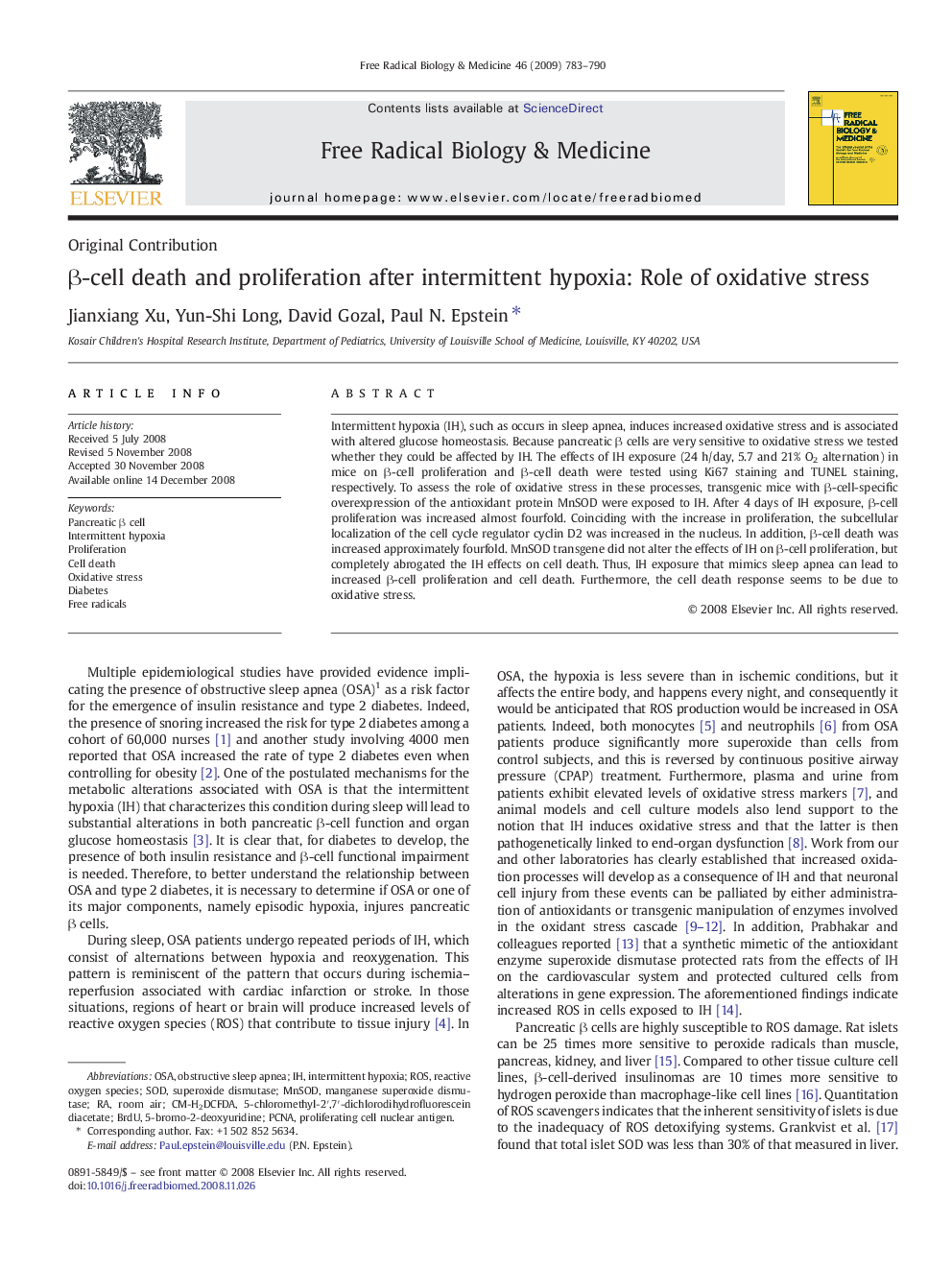| Article ID | Journal | Published Year | Pages | File Type |
|---|---|---|---|---|
| 1910746 | Free Radical Biology and Medicine | 2009 | 8 Pages |
Intermittent hypoxia (IH), such as occurs in sleep apnea, induces increased oxidative stress and is associated with altered glucose homeostasis. Because pancreatic β cells are very sensitive to oxidative stress we tested whether they could be affected by IH. The effects of IH exposure (24 h/day, 5.7 and 21% O2 alternation) in mice on β-cell proliferation and β-cell death were tested using Ki67 staining and TUNEL staining, respectively. To assess the role of oxidative stress in these processes, transgenic mice with β-cell-specific overexpression of the antioxidant protein MnSOD were exposed to IH. After 4 days of IH exposure, β-cell proliferation was increased almost fourfold. Coinciding with the increase in proliferation, the subcellular localization of the cell cycle regulator cyclin D2 was increased in the nucleus. In addition, β-cell death was increased approximately fourfold. MnSOD transgene did not alter the effects of IH on β-cell proliferation, but completely abrogated the IH effects on cell death. Thus, IH exposure that mimics sleep apnea can lead to increased β-cell proliferation and cell death. Furthermore, the cell death response seems to be due to oxidative stress.
